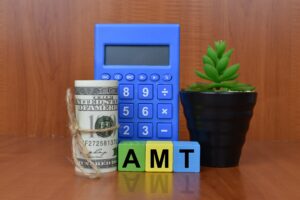IRS Overpaid by $6 Billion in Child Tax Credits in 2013

Although no one will probably ever shed a tear to hear that the IRS paid taxpayers too much money, this latest report does nothing to breed confidence in how things are run in the nation’s tax collecting agency.
According to reports, the IRS paid about $6 billion in child tax credits last year to people who shouldn’t have received them. The payments were made to people from all kinds of circumstances, including those who accidently claimed the wrong amount, those who shouldn’t have claimed the credit at all, and to others who simply committed tax fraud. The numbers come from an audit performed by the Treasury Inspector General for Tax administration.
This credit has been a huge benefit to those families with children who do not make enough to pay federal income tax, as well as to other low-income families. The government has for years claimed that there is not a lot of risk involved with the child tax credit and improper payments. However, the results of this new audit would strongly suggest otherwise.
Even though the Inspector General made several suggestions, the IRS did not agree with many of them. However, in a statement, the nations’ federal tax agency did admit that new processes are needed in order to reduce the number of incorrect payments. A total of $57 billion in child tax credits were paid to more than 36 million families in 2013, with between $5.9 billion and $7.1 billion being improper payments.
Business Angels for Your Startup Business
Business Angels for Your Startup Business By Mike Cain Setting up a new business can be a daunting prospect. There’s the possibility of failure, and with it, the risk of losing the money you’ve invested in your company, as well as seeing all your months or even years of hard work go to waste. But,…
Securing Second- and Third-Round Venture Capital Financing
Securing Second- and Third-Round Venture Capital Financing By Jim D. Ray Widget sales are booming – the competition is scrambling, demand is up, and the books are finally treading water. Your core management team has big ideas for the future of Widget Inc. Opportunity is abundant; but how will you fund that next big leap?…
Ten Ways Start-ups Use Venture Leases And Loans To Generate Millions
Ten Ways Start-ups Use Venture Leases And Loans To Generate Millions By George A. Parker The rise of venture leasing and lending has created an opportunity for sophisticated entrepreneurs to gain a competitive advantage. Savvy entrepreneurs are using venture leases and loans to generate millions of dollars for shareholders by leveraging existing venture capital. They…
Avoiding AMT
Avoiding AMT More and more taxpayers are finding a hidden tax on their individual tax returns. The alternative minimum tax (AMT) attempts to ensure that high income individuals who benefit from the tax advantages of certain deductions and exemptions will pay at least a minimum amount of tax. This tax was originally designed to keep…




